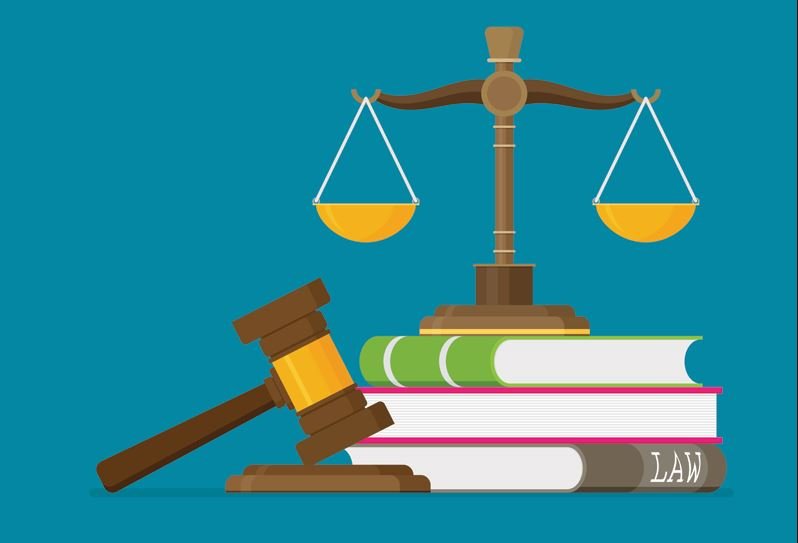Can I Empty My Bank Account Before Divorce? Think Twice
Facing a divorce can be an emotionally and financially challenging time.
One of the most pressing concerns for many individuals is how to manage their finances during this period.
Understanding the financial implications of divorce is crucial, as it can significantly impact your future stability.
Can you empty your bank account before divorce proceedings begin?
Emptying your bank account before a divorce can be seen as deceitful and may lead to legal complications.
It's essential to consider the legal and ethical implications of such actions.
Protecting your assets is important, but it should be done within the boundaries of the law.
Key Takeaways
Divorce can be emotionally and financially challenging.
Managing finances during this period is crucial for future stability.
The legality of emptying your bank account before divorce is complex.
Pre-divorce financial actions can have legal and ethical implications.
Courts scrutinize financial behavior during divorce proceedings.
Common Concerns
Among the many questions that arise, one common query is whether you can empty your bank account before divorce proceedings begin.
This question is not only a matter of financial strategy but also involves legal and ethical considerations.
Financial Actions Pre-Divorce
When contemplating financial actions before a divorce, it’s essential to be aware of the potential consequences.
The legal system often scrutinizes financial behavior during divorce, and actions perceived as deceitful or unfair can lead to complications.
Balancing Concerns
Protecting assets during a divorce is a legitimate concern.
However, it must be balanced with adherence to legal guidelines and ethical standards.
The importance of understanding these aspects cannot be overstated.
They play a critical role in ensuring a fair and equitable resolution for both parties involved.
Legal Framework
Marital vs. Separate Property
Understanding the distinction between marital and separate property is essential when considering financial actions before filing for divorce.
Marital Property
Marital property generally includes assets acquired during the marriage, regardless of whose name is on the title.
This can encompass everything from real estate to a savings account and retirement funds.
Separate Property
Separate property refers to assets owned by one spouse prior to the marriage or acquired individually through inheritance or gifts.
The implications for bank accounts are significant.
If you are contemplating emptying a joint bank account, it's crucial to recognize that these funds are typically considered marital property.
This means both spouses have a legal claim to the money.
Any unilateral action to withdraw funds before divorce could be viewed unfavorably by the court.
State-Specific Divorce Laws
Understanding Divorce Laws
Divorce laws vary significantly from state to state.
Understanding these differences is essential for effective pre-divorce financial planning.
The United States generally follows two primary systems for dividing marital property: community property assets and equitable distribution.
There are separate laws for different acts like divorce or even custody and you need to understand them clearly.
Community Property States
In community property states, all marital assets are typically divided equally between spouses.
This includes any funds in joint bank accounts, regardless of who contributed more.
States like California, Texas, and Arizona follow this model.
If you reside in a community property state, emptying a joint account could lead to severe legal repercussions.
The court aims to ensure an equal division of assets.
Equitable Distribution States
Equitable distribution states, such as New York and Florida, take a different approach.
Here, the court seeks a fair, though not necessarily equal, division of assets.
Factors like the length of the marriage, each spouse's financial contributions, and future earning potential are considered.
In these states, while you may have more leeway in managing your finances, any actions perceived as unfair or deceptive can still result in legal consequences.
Potential Legal Consequences
The Risks of Pre-Divorce Financial Actions
Taking financial actions pre-divorce without proper legal guidance can lead to significant repercussions.
One potential outcome is court-ordered reimbursements.
If the court determines that you have unfairly depleted marital assets, you may be required to reimburse your spouse.
This can complicate the divorce process and lead to additional financial strain.
Another serious consequence is being held in contempt of court.
Courts take a dim view of actions that appear to undermine the legal process or disadvantage the other spouse.
Ethical and Practical Considerations
Transparency and Fairness
When navigating the complexities of divorce and bank accounts, maintaining transparency and fairness is paramount.
Ethical obligations to your spouse may not be overlooked, even during a contentious separation.
Acting in good faith by being transparent about financial actions pre-divorce can set a positive tone for negotiations.
This approach helps facilitate a more amicable resolution.
The impact on divorce negotiations can be profound.
Financial Planning
Effective Pre-Divorce Financial Planning
Effective pre-divorce financial planning is essential for ensuring long-term financial stability.
Protecting assets during divorce is a legitimate concern.
However, it must be balanced with the need for financial security for both parties.
One of the key aspects of financial planning during this period is to avoid making hasty decisions.
Such decisions could jeopardize your financial future.
The importance of financial stability cannot be overstated.
Moving money before divorce without a clear plan can lead to unintended consequences.
Children's Financial Welfare
The financial welfare of any children involved is another critical consideration.
Child support is a significant aspect of divorce and money management.
Ensuring that adequate funds are available to meet the needs of your children should be a priority.
This includes not only immediate expenses but also long-term needs such as education and healthcare.
Shared responsibilities between parents are essential for maintaining the financial stability of the children.
Ethical and Practical Considerations
Transparency and Fairness
Importance of Transparency
When navigating the complexities of divorce and bank accounts, maintaining transparency and fairness is paramount.
Ethical obligations to your spouse should not be overlooked, even during a contentious separation.
Acting in Good Faith
Acting in good faith by being transparent about financial actions pre-divorce can set a positive tone for negotiations.
This approach helps facilitate a more amicable resolution.
Consequences of Secrecy
The impact on divorce negotiations can be profound.
If one spouse discovers that the other has secretly emptied a joint account, it can lead to a breakdown in trust.
This breakdown can significantly complicate the proceedings.
A lack of trust often results in prolonged legal battles, increased legal fees, and a more stressful experience for both parties.
Building a Foundation for Fair Negotiations
By adhering to ethical standards and ensuring that all financial actions are transparent,
you can help create a foundation for fair and equitable negotiations.
Financial Planning
Importance of Planning
Effective pre-divorce financial planning is essential for ensuring long-term financial stability.
Protecting assets during divorce is a legitimate concern.
However, it must be balanced with the need for financial security for both parties.
Avoiding Hasty Decisions
One of the key aspects of financial planning during this period is to avoid making hasty decisions that could jeopardize your financial future.
The importance of financial stability cannot be overstated.
Risks of Moving Money
Moving money before divorce without a clear plan can lead to unintended consequences, such as tax implications or penalties.
Seeking Professional Guidance
Consulting with a financial advisor can provide valuable insights into the best strategies for managing your assets.
This includes understanding the bank account rules that divorce proceedings may impose.
It’s important to ensure that your actions align with these regulations.
Long-Term Financial Health
Long-term financial health should be a primary consideration.
This involves not only protecting your current assets but also planning for future needs, such as retirement and healthcare.
A Comprehensive Approach
By taking a comprehensive approach to financial planning, you can help ensure that both you and your spouse achieve financial security post-divorce.
Children's Financial Welfare
Critical Considerations
The financial welfare of any children involved is another critical consideration.
Child support considerations are a significant aspect of divorce and money management.
Ensuring that there are adequate funds available to meet the needs of your children should be a priority.
This includes not only immediate expenses but also long-term needs,
such as education and healthcare.
Shared Responsibilities
Shared responsibilities between parents are essential for maintaining the financial stability of the children.
Both parents should work together to create a financial plan that addresses the needs of the children.
It’s vital to ensure that their welfare is not compromised.
Financial Planning Strategies
This may involve setting up separate accounts for child-related expenses. Alternatively, parents can agree on a fair division of financial responsibilities.
Alternative Actions
Temporary Financial Agreements
Establishing Temporary Agreements
When considering financial actions pre-divorce, one effective strategy is to establish temporary financial agreements.
These agreements can help manage joint accounts and ensure that both parties have access to the necessary funds while the divorce is being finalized.
Importance of Joint Account Management
Joint account management is crucial during this period.
It helps prevent either spouse from unilaterally withdrawing funds before the divorce, which could lead to legal complications and mistrust.
Utilizing Temporary Restraining Orders
Temporary restraining orders can also be a valuable tool.
These orders can prevent either spouse from making significant financial moves, such as emptying joint accounts or selling marital assets, without mutual consent.
Ensuring Financial Security
By putting these safeguards in place, both parties can feel more secure about the financial stability of their assets during the divorce process.
This approach not only protects assets during divorce but also helps maintain a level of fairness and transparency.
Consulting Financial Advisors
Navigating Financial Complexities
The role of a financial advisor cannot be overstated when navigating the financial complexities of a divorce.
Consulting with a financial advisor can provide you with a clear understanding of your financial situation.
Developing a Financial Strategy
They can help you develop a comprehensive divorce financial strategy.
Advisors offer insights into the best ways to manage your assets, including the implications of moving money before divorce and the potential tax consequences.
Long-Term Planning
Long-term planning is another critical aspect that financial advisors can assist with.
They can help you create a financial roadmap that takes into account your future needs,
such as retirement, healthcare, and education expenses for any children involved.
Making Informed Decisions
By working with a financial advisor, you can ensure that your financial decisions during the divorce are well-informed and aligned with your long-term goals.
This proactive approach to financial separation can help you achieve greater financial security in the future.
Open Communication
Building Trust
Open communication between spouses is essential for a smoother divorce process.
The benefits of transparency cannot be overstated, as it helps build trust and facilitates more amicable negotiations.
Collaborative Solutions
By openly discussing financial matters, both parties can work together to find mutually agreeable solutions.
This approach reduces the likelihood of contentious disputes.
Effective Communication Methods
Mediation and collaborative law are effective methods for fostering open communication.
These approaches encourage both parties to work together with the help of neutral third parties, such as mediators or collaborative lawyers, to reach a fair settlement.
Flexibility in Negotiation
Mediation allows for more flexible and creative solutions.
On the other hand, collaborative law involves a team of professionals, including financial advisors and mental health experts, to support the negotiation process.
Prioritizing Well-Being
Both methods prioritize the well-being of all parties involved and aim to achieve a fair and equitable resolution.
Frequently Asked Questions:
1. Can I empty my bank account before divorce proceedings?
Emptying your bank account before a divorce can be seen as deceitful.
Such actions may lead to legal complications during the divorce process.
It's crucial to consider both the legal and ethical implications of withdrawing funds.
2. How can I protect my assets during divorce?
Protecting your assets is important, but it should be done legally and ethically.
Consulting with a financial advisor can help you create a strategy that safeguards your interests.
Temporary financial agreements can also help manage joint accounts during the divorce.
3. What are the benefits of open communication in divorce?
Open communication fosters trust between spouses, leading to more amicable negotiations.
Discussing financial matters can help both parties find mutually agreeable solutions.
Methods like mediation can further facilitate constructive dialogue and fair settlements.
Conclusion
Facing a divorce presents emotional and financial challenges. Managing finances during this time is crucial for future stability.
Understanding legal implications is vital to avoid complications. Emptying your bank account before a divorce can be perceived as deceitful.
Protecting assets must be balanced with legal and ethical standards. Effective pre-divorce financial planning ensures long-term stability. Maintaining open communication can facilitate amicable negotiations.








